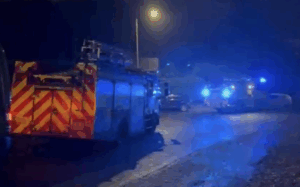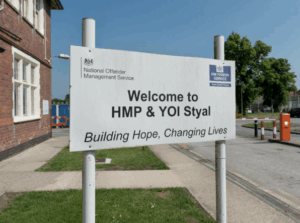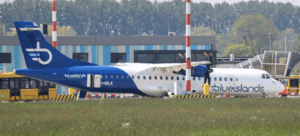Heathrow Airport has defended its controversial decision to shut down operations last Friday after a major power outage sparked chaos at Europe’s busiest travel hub, stranding thousands of passengers and costing airlines tens of millions of pounds.
The 18-hour closure, triggered by a fire at a high-voltage electrical substation in nearby Hayes on the night of March 20, brought all departures and arrivals to a halt. More than 1,300 flights were cancelled or diverted, and widespread disruption rippled across the global aviation network.
As pressure mounts over who should shoulder the blame, Heathrow Airport officials have insisted the decision to suspend operations was made to protect passenger safety and infrastructure integrity.
“Safety must always come first,” said Heathrow CEO Thomas Woldbye in a statement. “The outage compromised key operational systems. We made the difficult but necessary choice to close the airport to prevent further risk and ensure a safe recovery.”
Airlines Count the Cost
Airlines, however, have expressed frustration over the response and communication during the shutdown. Industry experts estimate that the disruption has cost carriers tens of millions of pounds, with British Airways, Virgin Atlantic, and international operators among the worst affected.
“This level of impact is unprecedented in recent years,” said aviation analyst John Strickland, noting the ripple effects of cancelled flights, missed connections, and compensation claims under EU and UK passenger rights legislation.
Investigation and Fallout
The fire at the North Hyde substation, which provides power to Heathrow, has prompted investigations by both the London Fire Brigade and Metropolitan Police Counter Terrorism Command due to its impact on critical national infrastructure. Though authorities have since confirmed there is no suspicion of foul play, the event has reignited concerns about the vulnerability of key transport assets.
The Insolvency Service and Ofgem are also conducting separate inquiries into whether the infrastructure operator met its responsibilities, while the Energy Secretary Ed Miliband has demanded a full review of energy resilience planning for transport hubs.
Passenger Backlash and Calls for Reform
Passenger advocacy groups have criticised what they describe as a lack of contingency planning and poor communication, citing overcrowded terminals and limited information during the shutdown.
“We were left in limbo,” said Rachel Green, a stranded passenger returning from New York. “No updates, no support – just chaos.”
Moving Forward
Heathrow has vowed to implement internal reviews, including one led by former Transport Secretary Ruth Kelly, now a board member. The airport also plans to collaborate with energy and transport regulators to bolster system resilience and prevent future incidents.
“This has been a wake-up call,” Woldbye added. “We owe it to the passengers, airlines, and staff to ensure it never happens again.”
Despite full operations resuming over the weekend, the fallout from Heathrow’s blackout is expected to linger for weeks, as inquiries continue and the debate over accountability unfolds.





































